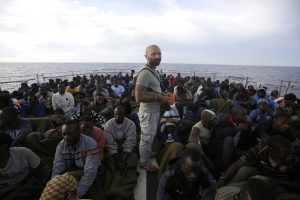by Azzurra Immediato
_
How many forms does travel have? What are the places where it leads our lives?
We associate positive concepts with the word “journey” such as discovery, peaceful estrangement, vacation or adventure. In our imagination, which is influenced by the classical literary tradition, the journey par excellence is epic and, subsequently, linked to the great geographical discoveries of the Indies or the Americas. The Mediterranean is one of the pivots around which our civilization has moved. Yet, even today, the very idea of ”civilization” makes countless mistakes linked to travel.
Now that travelling has become an intangible desire, a memory or a project, there are those who continue to travel and not for a holiday or for a break from the alienating reality but to try and survive leaving their homeland, hoping for an opportunity, far from war, famine, death. To tackle this “journey”, we chose the gaze of Francesco Malavolta, photojournalist, whose memory preserves and tells what for many is a true pilgrimage on the edge of humanity. his work addresses what happens where the West has placed a veto, political, social and material barriers to preserve that millenary superiority which seems unable to do without. Malavolta, who has just returned from what is called the “Balkan route”, is about to leave for Greece, towards the Hellenic area which has become a foothold for refugees pursuing their dream. I had the opportunity to ask him some questions that unravel incredible stories and attest to the difficulties that only human people can tackle, as his photographs tell.
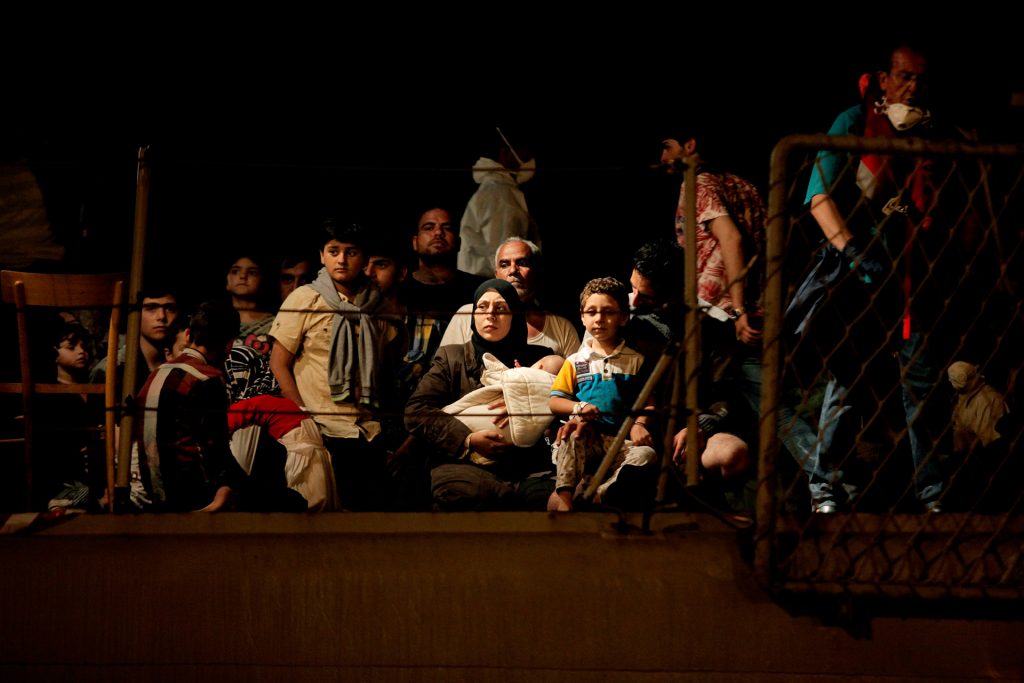
In your work and in your many travels, can you still see that anachronistic distinction between Us and Others?
I think there is a very small or very big difference between us and others, depending on how you understand it. It is one thing if, somewhere, the Others authentically preserve their own culture, their own way of life. For example, when I arrive in a place, I like to discover the peculiarities: just think of Italy, of the many differences between the various regions; therefore, in that diversity, understood as “the others and I”, I see new ways of living and it is fine. It is different if the diversity is enforced with prohibitions, lack of respect for human rights or the obligation to stay somewhere due to the political regimes that, in many countries, still dictate rules. Therefore, on the “human side” I have never seen a difference between me and the others; as an individual, I think there must always be respect and that it is necessary to see others as people with the same rights as us.
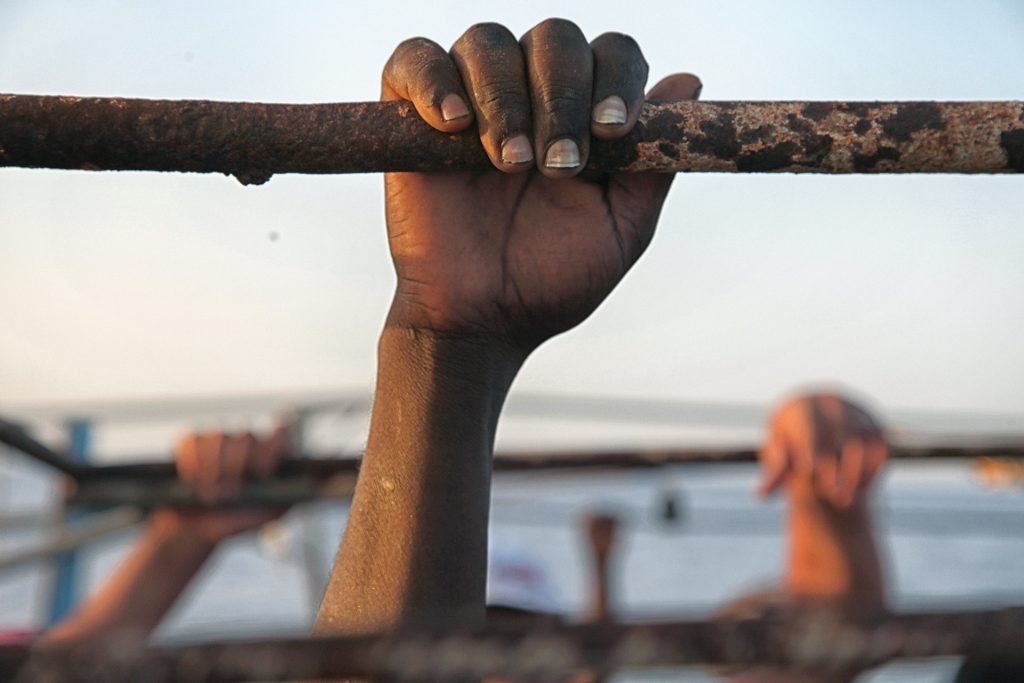
Identity and Dignity are two sides of that same coin that those who decide to embark on the journey of life, the routes of migration, carry in their pockets. How much strength have you found in these two existential paradigms?
You have used two key terms of our society. Identity is that set of characteristics that make the individual unique and which must be associated with dignity, understood as respect on a moral level, a universal value. These two terms, however, seem to be sort of blended: the lack of any certainty; imagine a man, a woman, a child who find themselves, without blame, in a conflict, their house bombed and everything lost: work, loved ones, financial support. The lack of work, in those countries where it is already rare or paid very little, transforms the individual into the victim of a wrong system, on which us Westerners make money. Identity and Dignity are simple to describe but complex to understand; often, the people I meet have lost them both, they live in despair and this happens even where human rights should be protected, as in Europe. Still, a whole rotten system allows those people to become invisible. We should work to maintain or rebuild dignity and identity and this does not only concern the many desperate people I meet and photograph but also those closest to us and in need of help. I firmly believe that only when all of this is restored to its proper value, only then social justice will be restored.
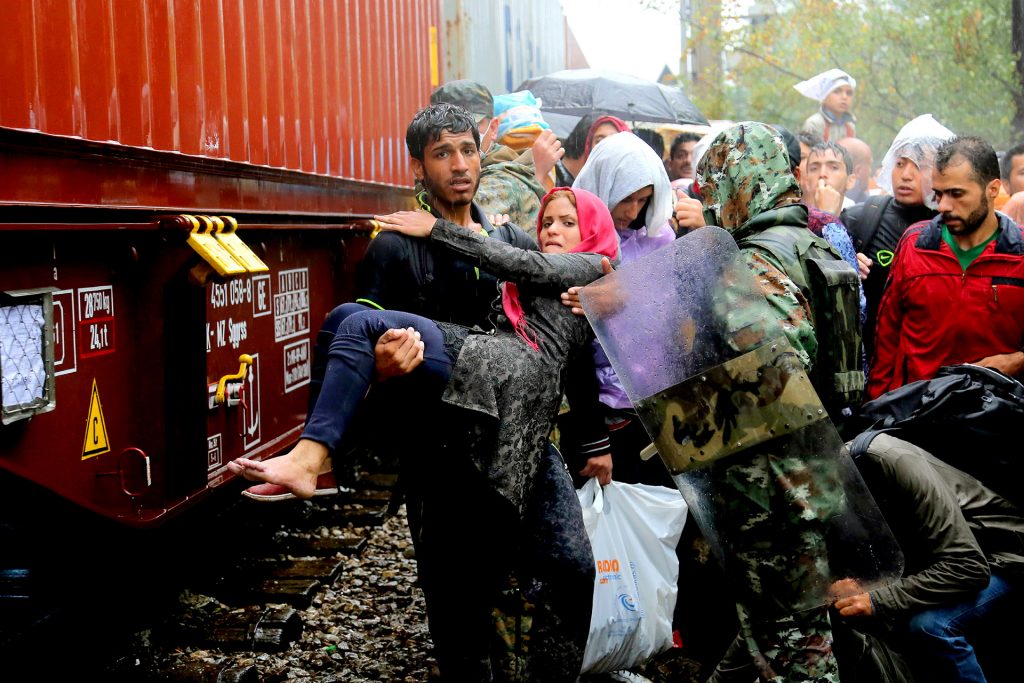
What prompts you to tell what happens on the edge of our lives, of our comfort zones? And what are the reasons you read in the eyes of those you met, people able to leave everything behind in the search for an uncertain fortune and life?
I am driven by the will, the desire and the need to tell, because telling the life of others, in the case of a photojournalist, is not just a job: it becomes a necessity. Those lives, those stories, without someone telling them would be invisible; in their eyes, I read scripts I’ve already seen, similar yet different every time. The reasons are the same, war, hunger, climate change, violence, denied rights accompanied by a single purpose: survival. What everyone is looking for, after all, is to restore their dignity, pursuing, through very difficult journeys, the serenity that has disappeared in their homeland. The reason that drives me to carry on after so many years is the “need”, the duty to tell those stories.
Memory and Remembrance are concepts that, in the migratory parable, clash with those of the wealthy world. How does the blindness of our West intersect with the endless gaze of those who choose to risk their lives emigrating?
In Western countries an invisible wall has been raised between those who live in luxury and those who survive, perhaps due to the fear of the wealthy classes of losing their privileges; one may look at those outcasts fearing that they may steal the prosperity achieved. This makes us blind, devoid of empathy. There is little attention to memory or, even, there is a desire not to face it ethically. Other times one gets the impression that it is the powerful ones who take advantage of it, turning the poor and the very poor against each other, creating hatred – think about migration policy. This opens up a media war between those looking for a place in this world, and those who, on the other hand, want to keep their distance at all costs, in order not to lose their status.
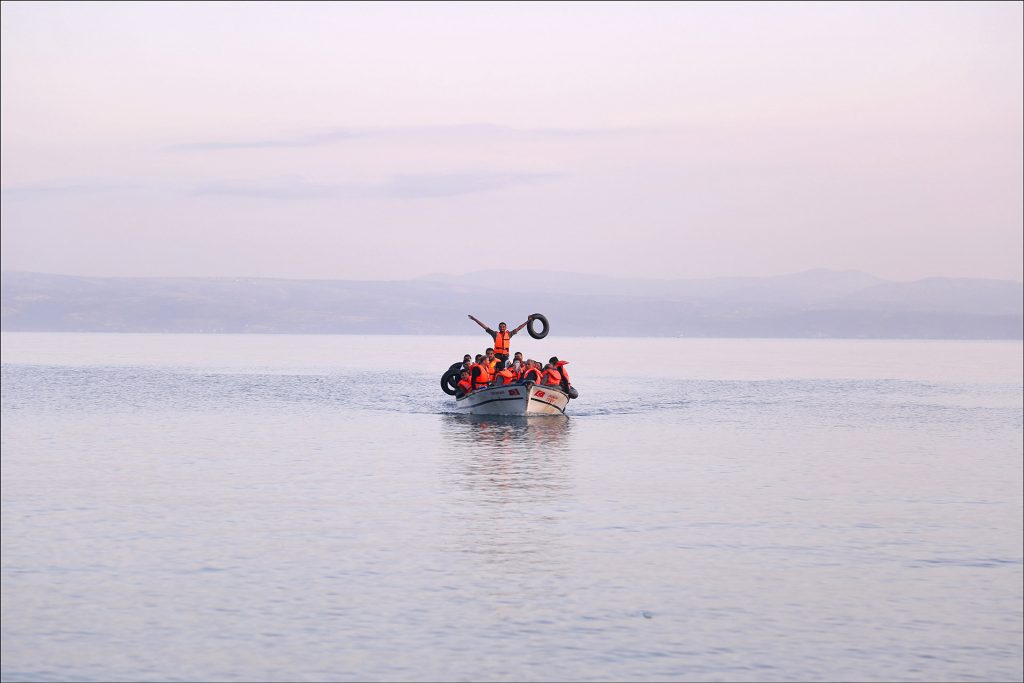
Reportage: yesterday and today, what has changed and how important is the role of national and international politics, non-governmental associations and the like in the choices of a photojournalist?
The photo-reportage is unchanged in its basic aspects: commissioned, freelance work remains the result of a study, of a project that tells of what is happening. The approach has changed, today it is much faster, dictated by the needs of newspapers to reduce, for economic reasons, the time allowed for a reportage. Photojournalism has always been about a small number of professionals, but this is no longer the case today. Someone says that photography is dead, and instead, it is never been so alive: in every corner of the planet there is someone who, with different means – because the way of photographing has also changed – manages to tell stories. It is obvious that assigning a report to a professional means choosing a certain type of study, an investigation which, however, often fails for economic reasons.
Politics plays a fundamental role in all this because, especially for social issues such as emigration, it tends to silence a certain type of press, increasing the distance between those who must be told and those who want to tell, denying the possibility of accessing certain key locations: borders, landing strips, refugee camps and transit routes. Internationally, it stands against organizations, trying to bind NGOs and, therefore, those who want to talk. Until a few years ago it was the desire of many reporters to get on one of the many ships in the Mediterranean, today, both for the lower number of boats but above all for the fear of being blocked for weeks before being allowed to disembark, the newspapers and the photojournalists themselves think carefully before sending a correspondent or getting on board.
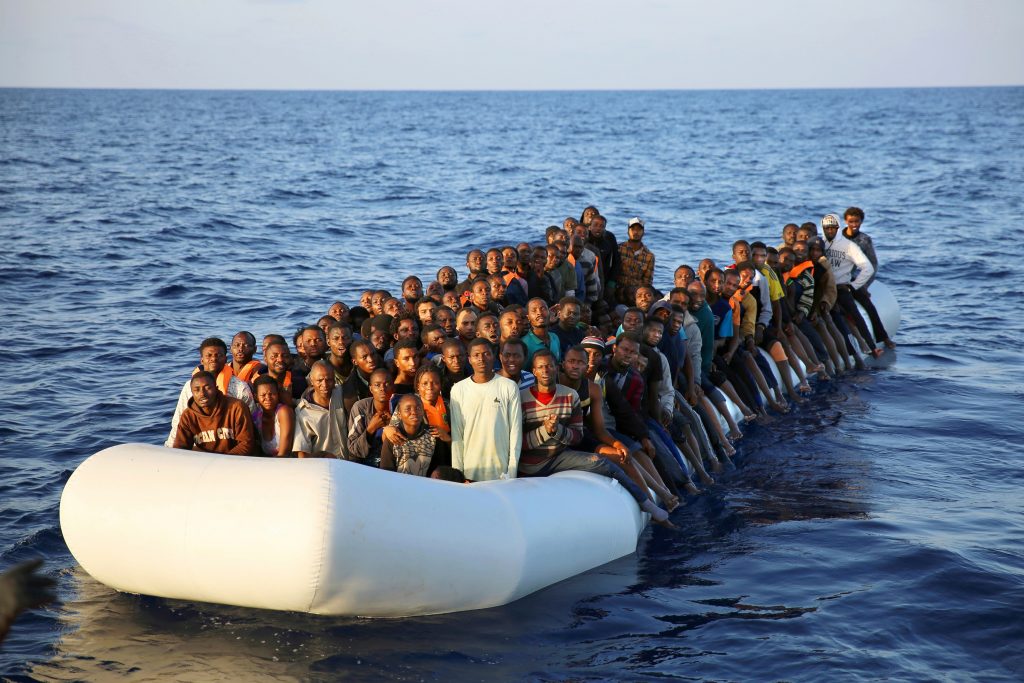
In your opinion, is migration a denial of humanity?
Those who flee from their native places always suffer denial or have seen their rights neglected. Migration, in such cases, is a denial of life. Then there are those who migrate, even to our countries, simply to change and improve their quality of life, without any obligation or imposition: on these occasions, we cannot speak of denial but only of choice.
Do you think that all of us, in front of the scenes and moments you portray, could be ready to no longer pose as barriers to the lives of others?
Part of those who look at those photos are and will always be ready, because through empathy they understand the motivations that drive them to do what my reports tell, and show solidarity with others. Another party, the one that makes noise, will never understand these reasons, out of ideology and mental closure. It is clear how much these two parties cannot dialogue, although I hope that, in the future, we will be able to reach empathy and be supportive. Nowadays, with the web it is easier to find and read hateful words; I am sure that the same thing also happened thirty or forty years ago, but it remained confined to small groups of people in the pub, by the newsstand, in a square, without having too much resonance.
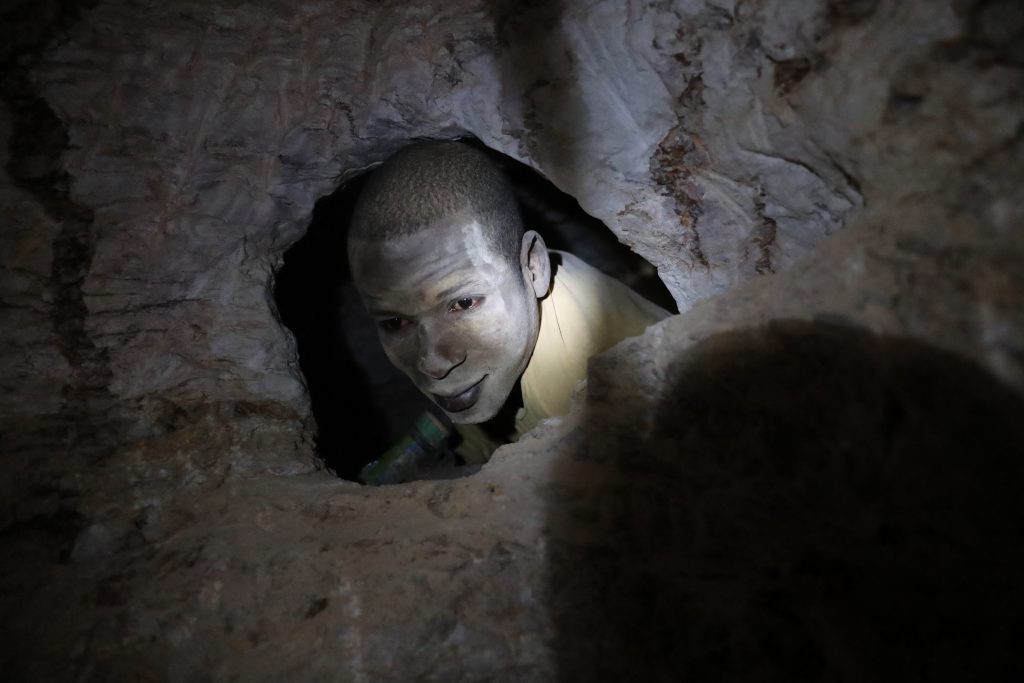
Future projects?
For twenty-five years I have photographed all the aspects related to the emergency part of migrations: from the search for help to rescues, from transits to landings. Now I would like to continue what I started a couple of years ago: to tell the causes of why this happens, of people who emigrate and of their lives, visit their countries, show that there are many, too many who are fleeing because of wars and poverty.
I started from Ethiopia and Burkina Faso, which do not register a large migratory flow towards abroad, but towards areas within the country. There is, in fact, a wrong narrative, a wrong collective idea: it is thought that migrations take place towards the north or towards Europe. In reality, over 70% is consumed within narrower territorial borders, such as neighboring countries on the same continent, from East to West, or South. I would like to be able to tell those causes that, despite appearing simple to narrate, are shrouded in a lot, too much blindness.
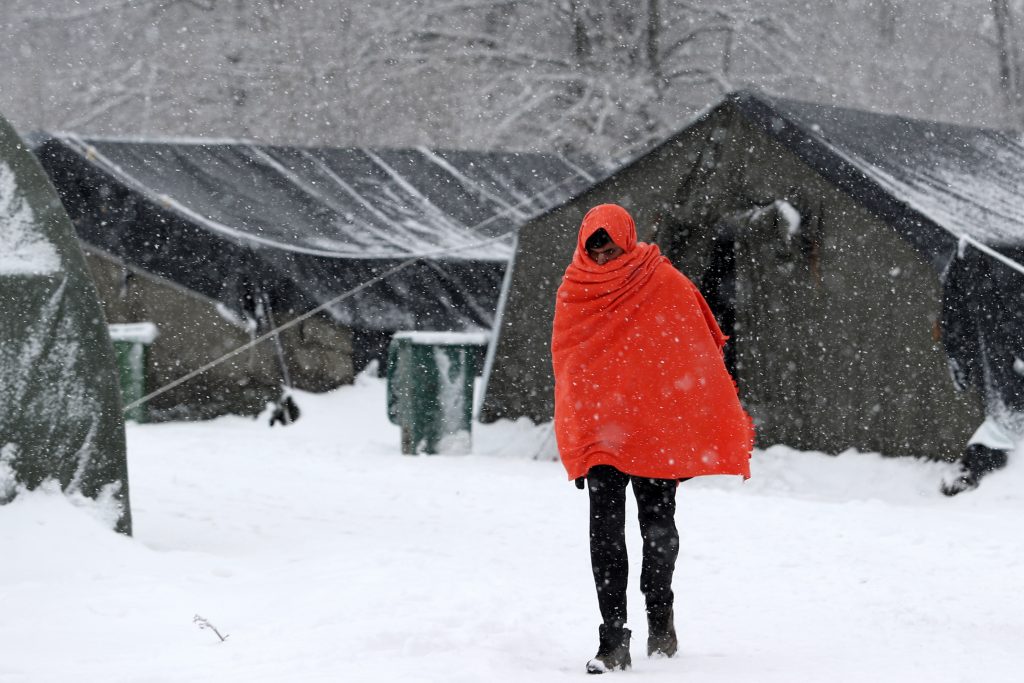
Today, perhaps, Francesco Malavolta is elsewhere, photographing, discovering the stories he feels the – moral, ethical, civil – need to divulge so that the rest of the world knows what happens to those in a limbo of despair and uncertainty, on their future and on their present while, in order to survive, they cancel their past. Each photograph by Francesco Malavolta is the metaphor of a world that man has deprived of harmony or balance, where power is in the hands of a few. Those few, without realizing it, are us. Blind to the difficulties of others, ready to be “indignant” at the nonsense borrowed from the flow of news in which truth and lies are mixed. The dignity, the identity that the West has taken from the people we now reject is something we need to face. The dead in the Mediterranean are our dead. The cold and hunger suffered by migrants stranded in the Balkan is our cold and our hunger. Children who are orphaned are children of despair and of our indifference.
In a society accustomed to the spectacularization of drama, the images of this endless journey to the edge of humanity could cause less sensation than the latest gossips. And saddest thing is that we are a lot poorer, much more outcast than those we define as such, in the contemptuous superiority of our being Westerners. Listening to Francesco Malavolta, the voice that tells what his eyes have seen, his ears heard, his soul understood is not easy to translate into an article; every reportage of him captures the gradient of truth that the faces and the figures in his photos carry with them. Among the shots, there are some that I consider indelible, that made me look at the sea in a different way; I hope it will happen to you too, because the infinite beauty of life is guarded in the dignified and desperate pain they narrate.
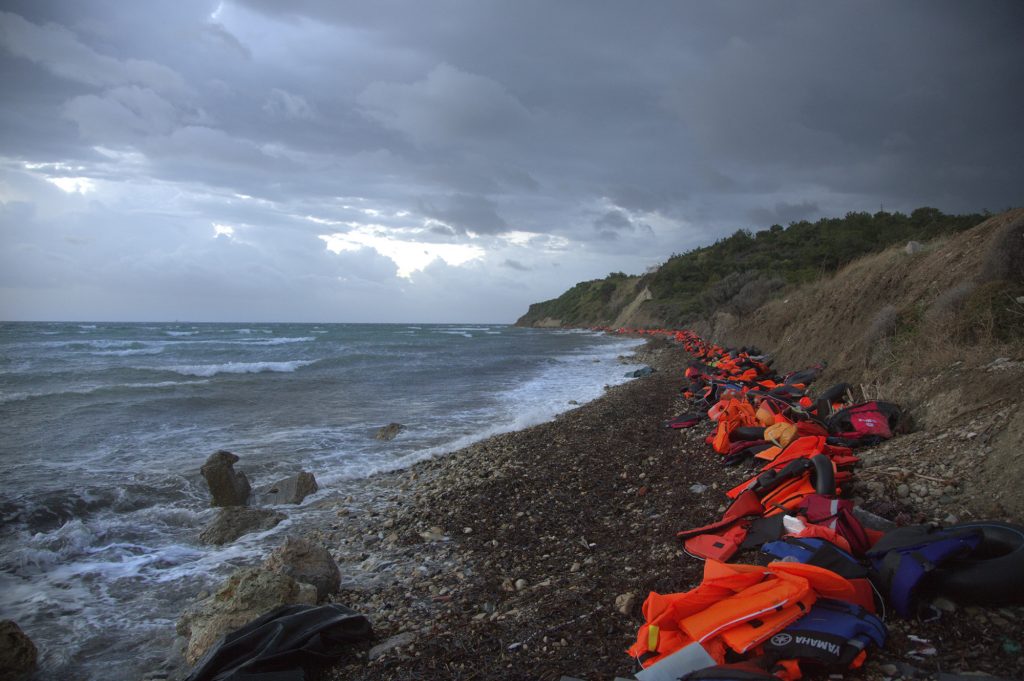
All images: © Francesco Malavolta
I take advantage of this moment to thank Francesco Malavolta: he doesn’t know he taught me how to look at the world with new eyes; through his way of doing photography, his way of telling what lies beyond our beautiful world. I have changed my perspective, I see in what historical anthropology considered the “other from us” simply people like us; I now think of boundaries as something to be broken down, overcome. Thank you, Francesco, you turned photography into a lesson on life.
